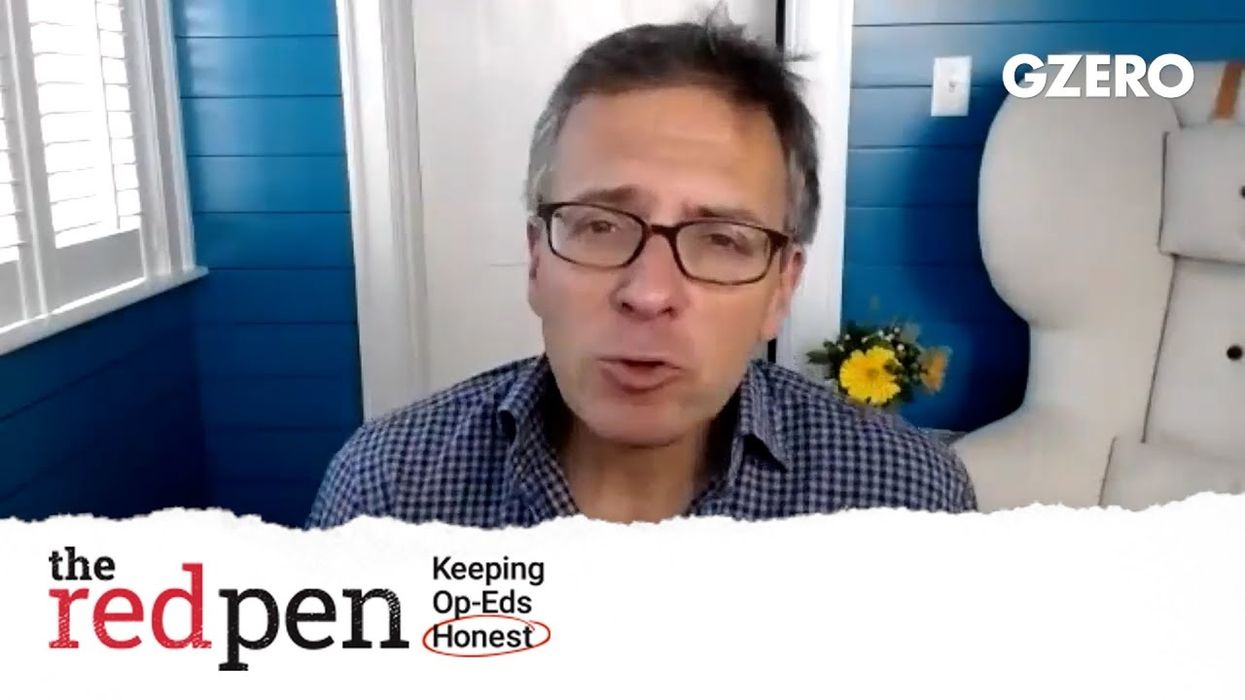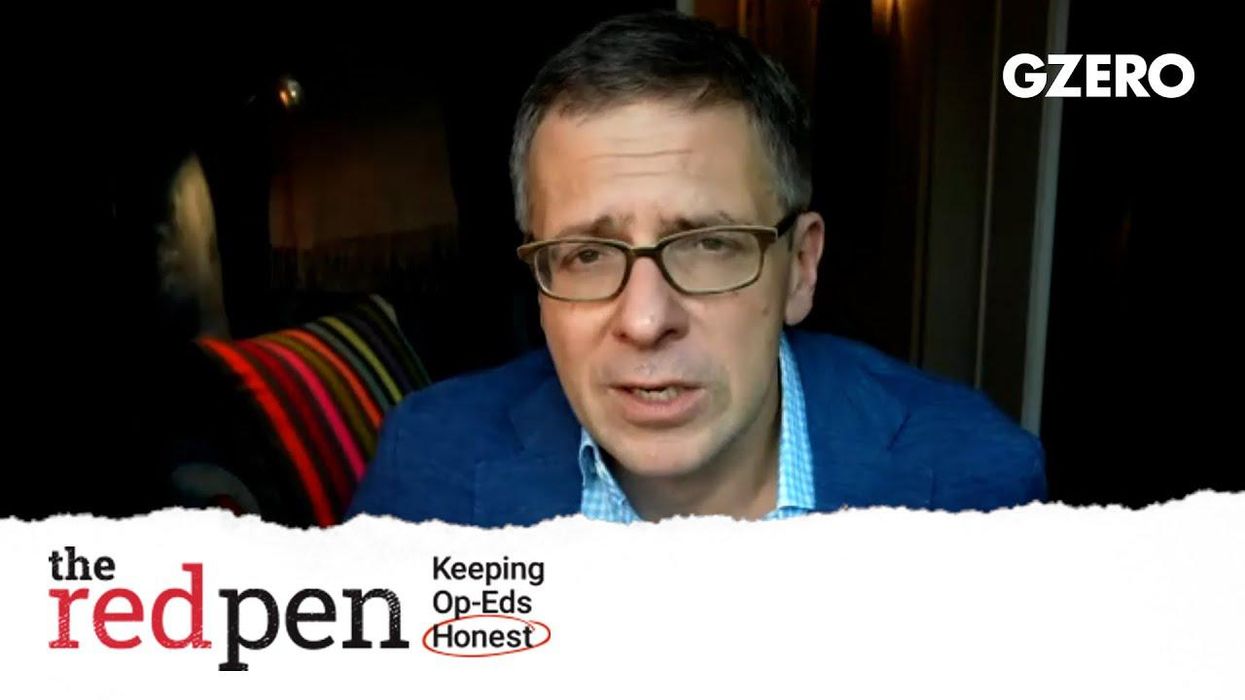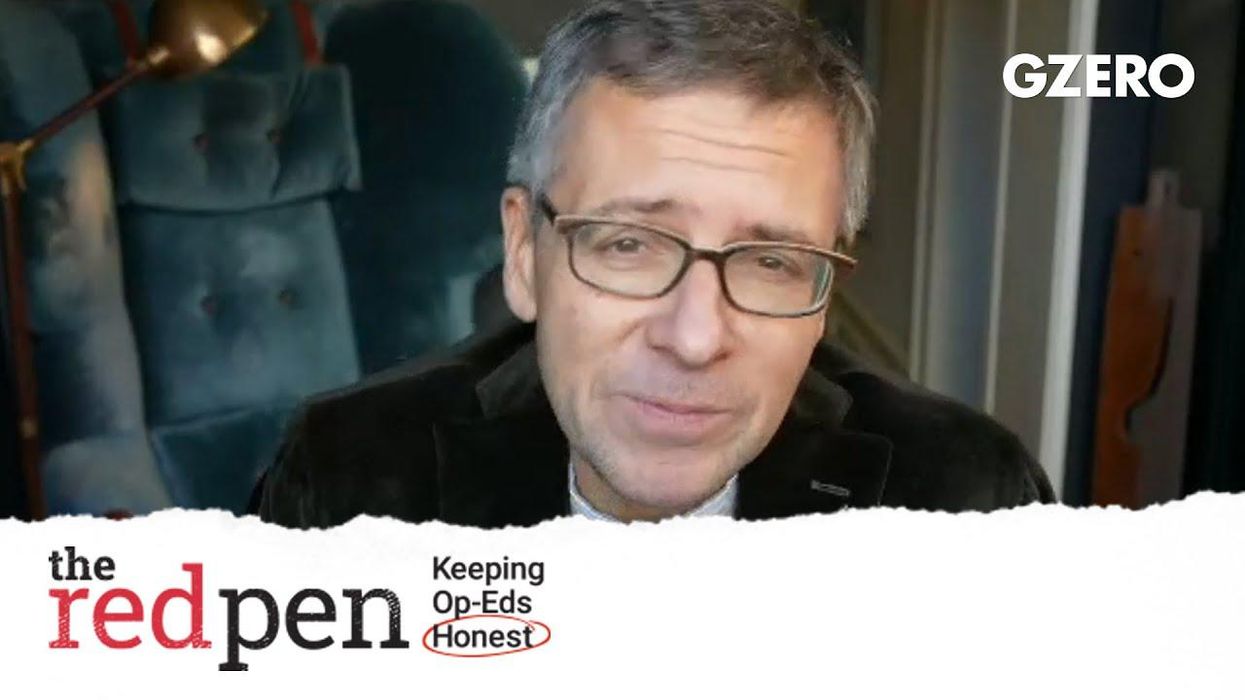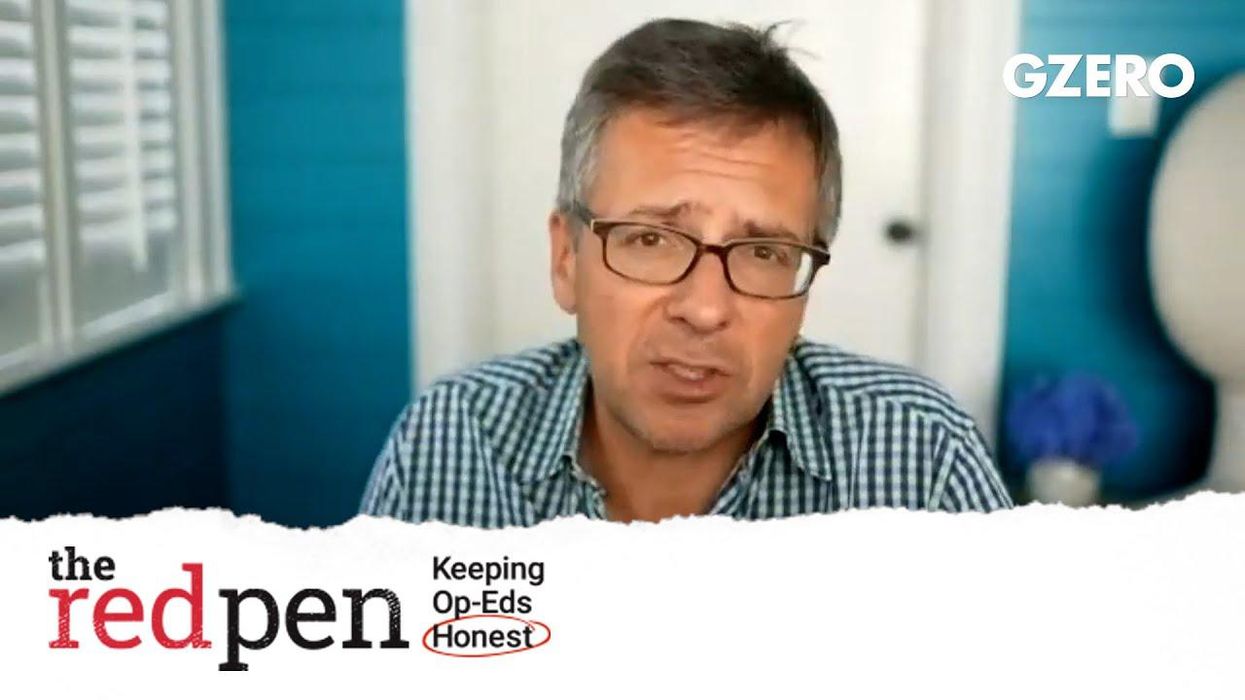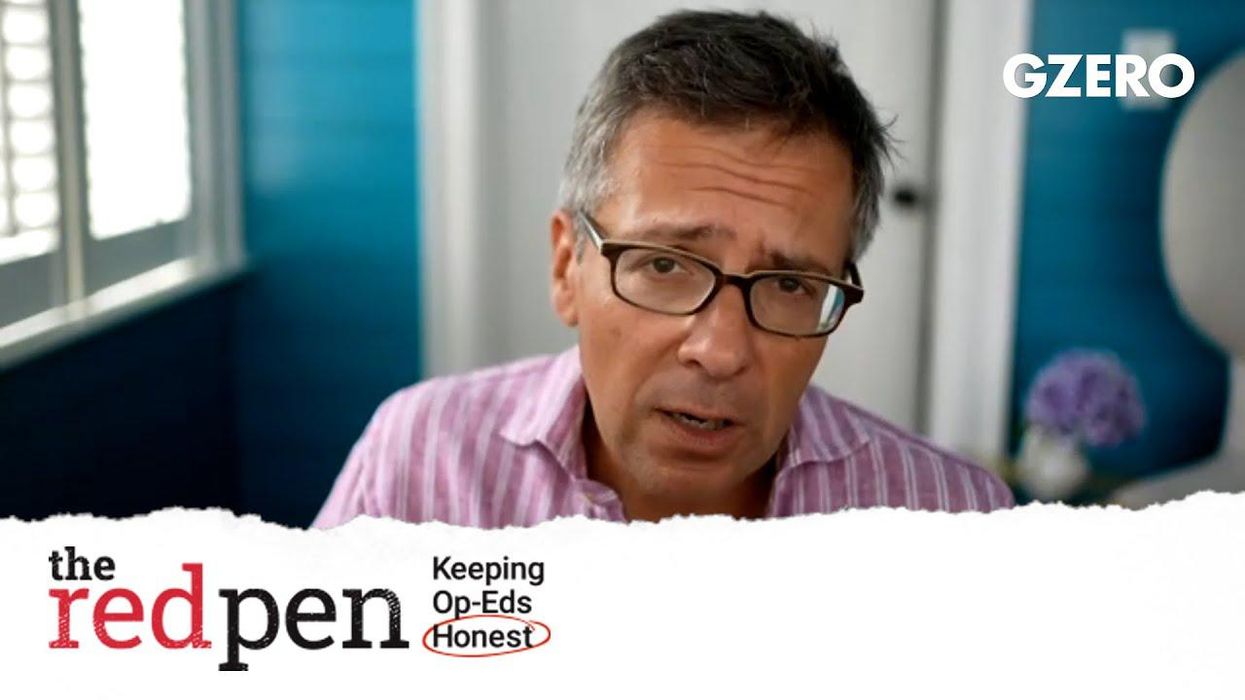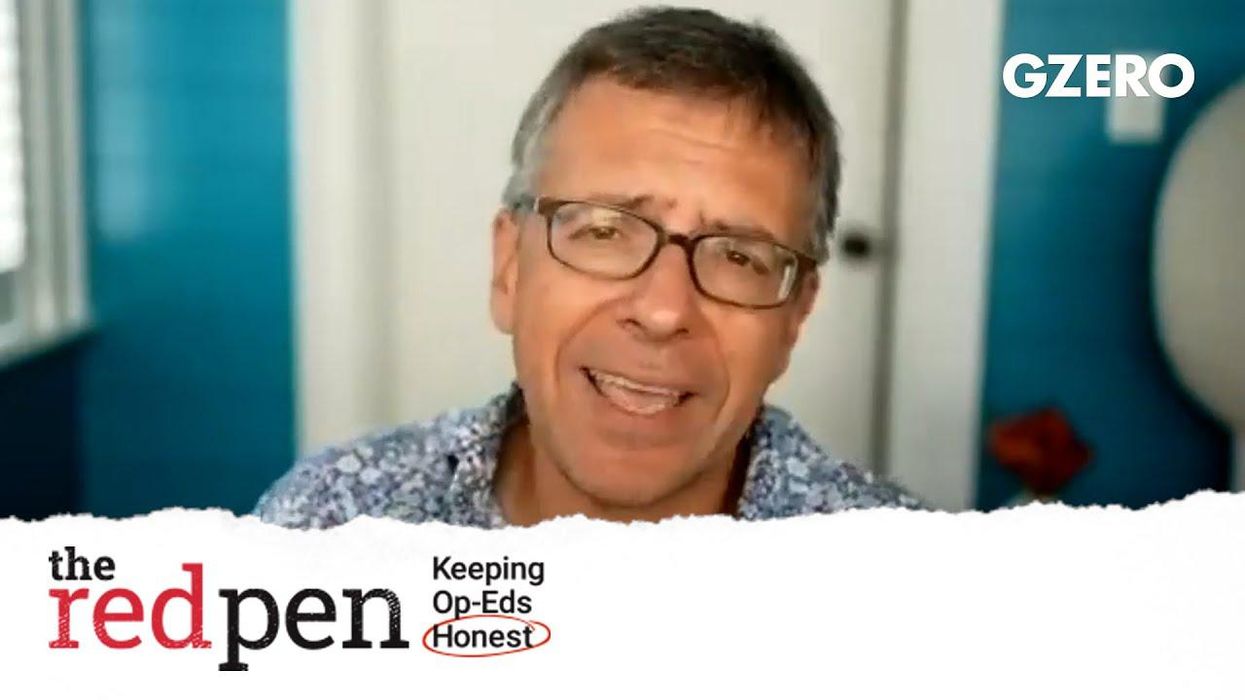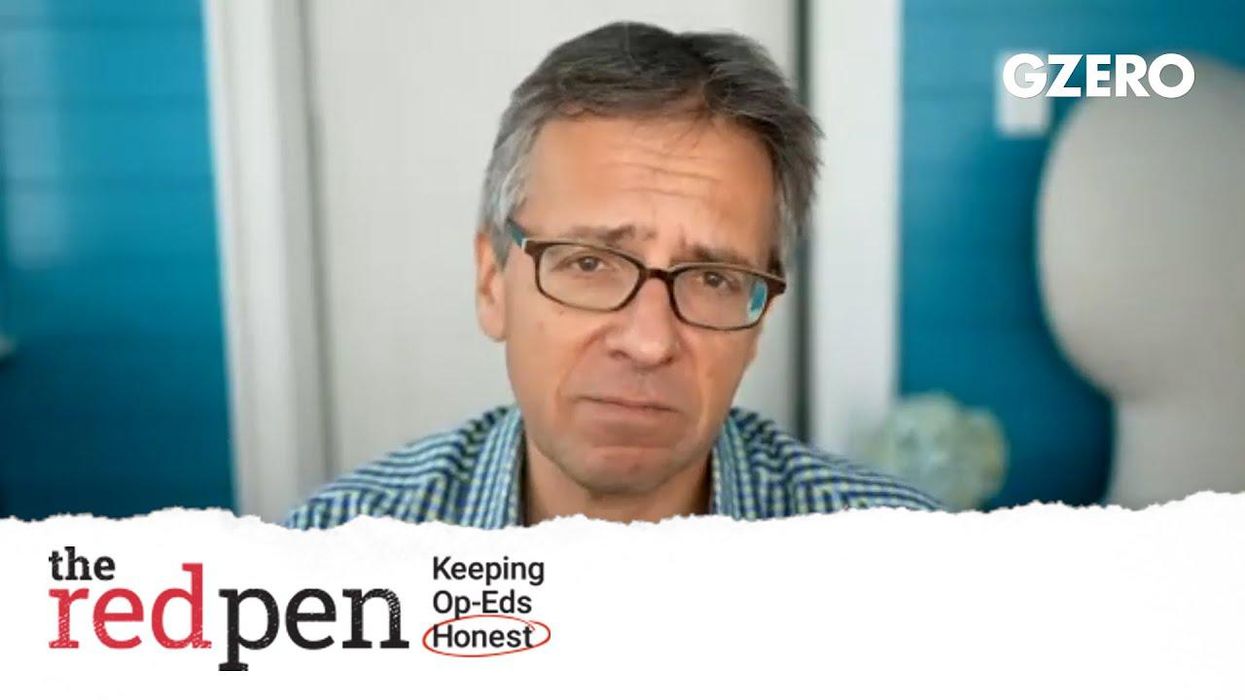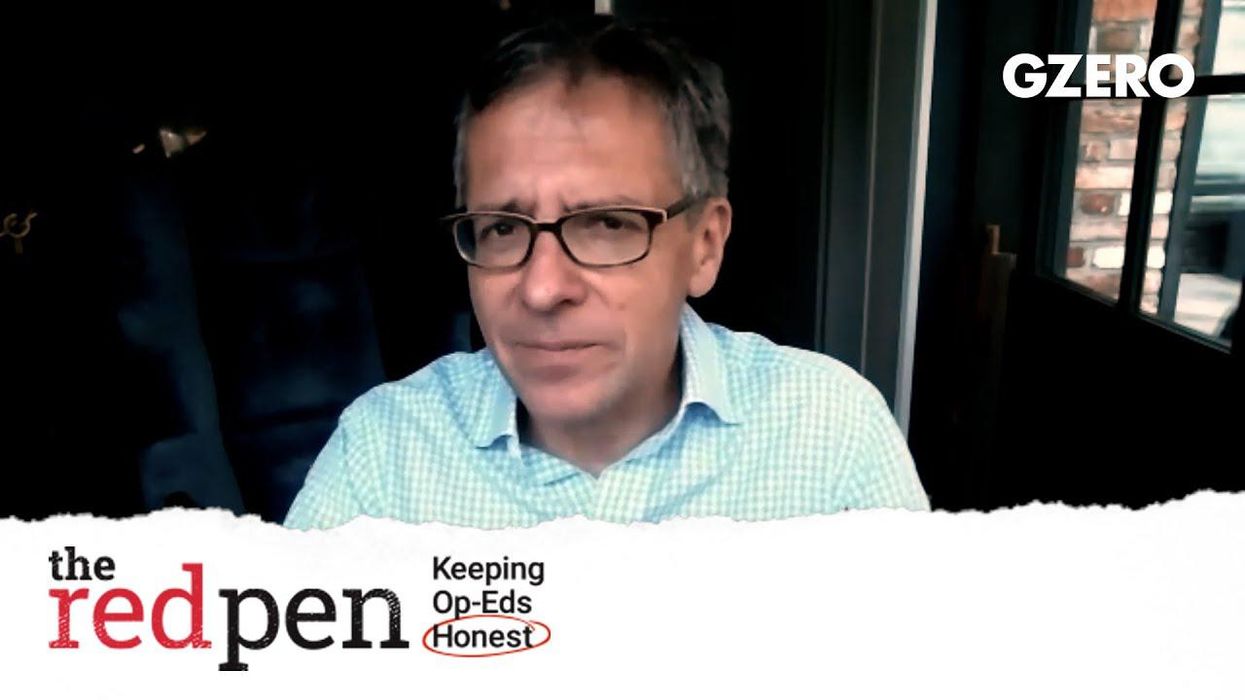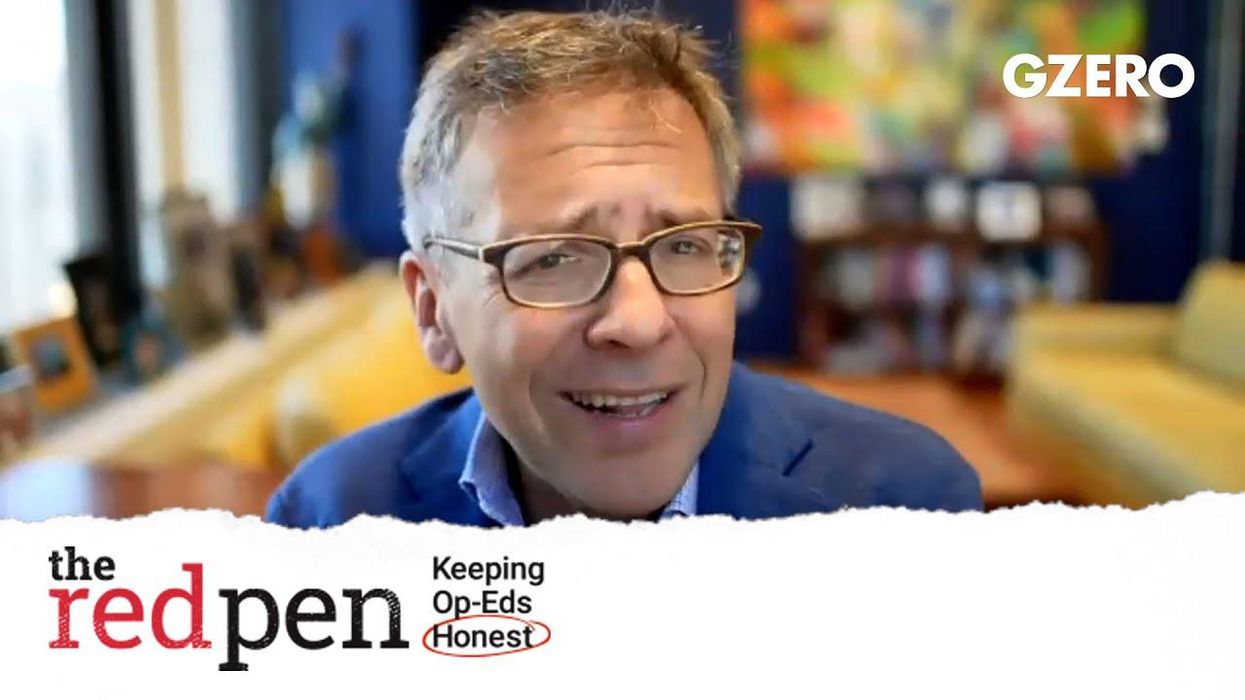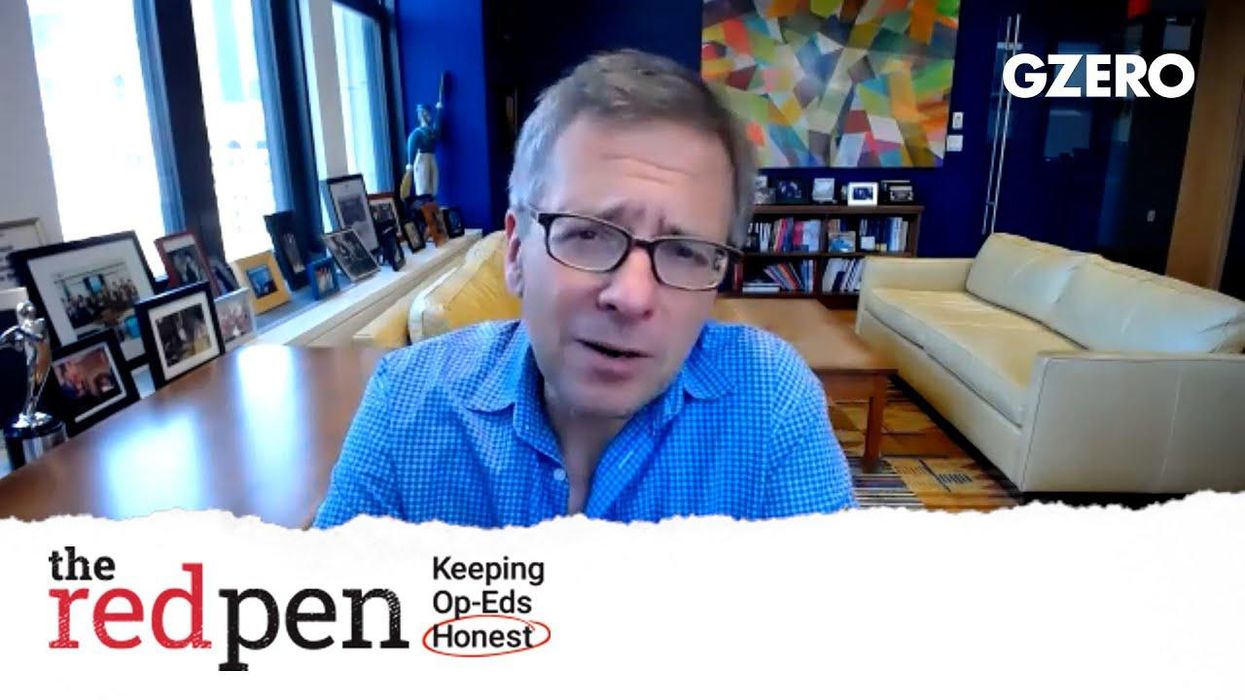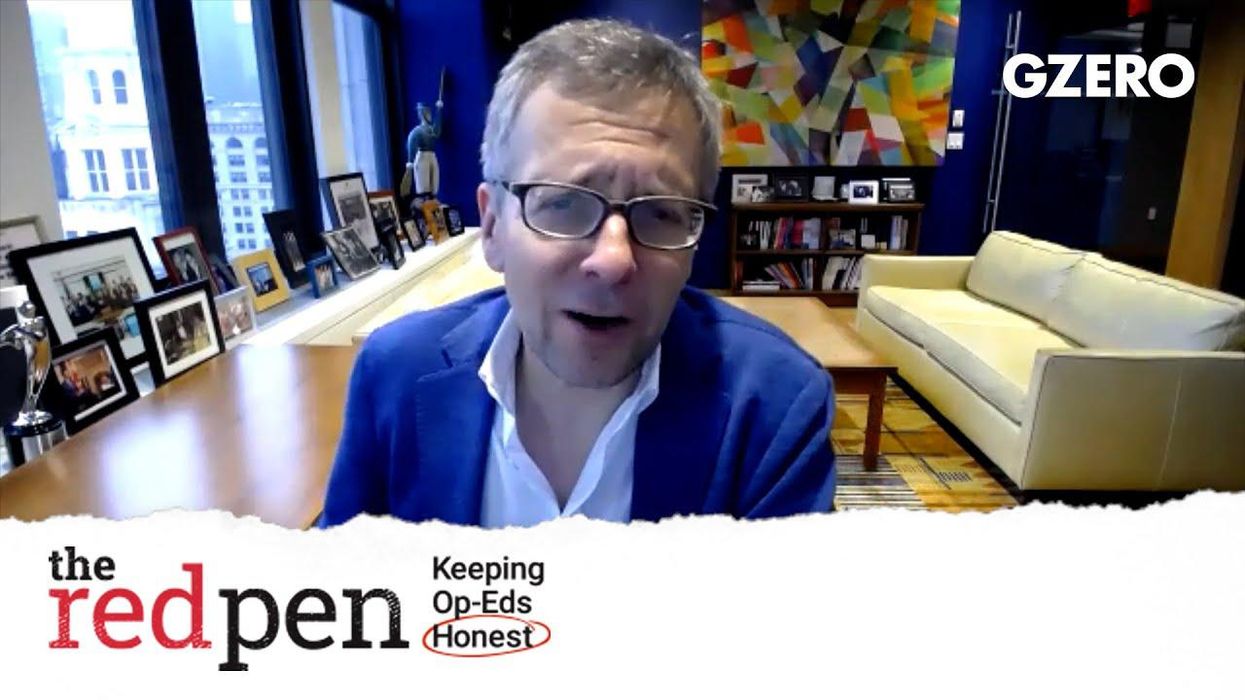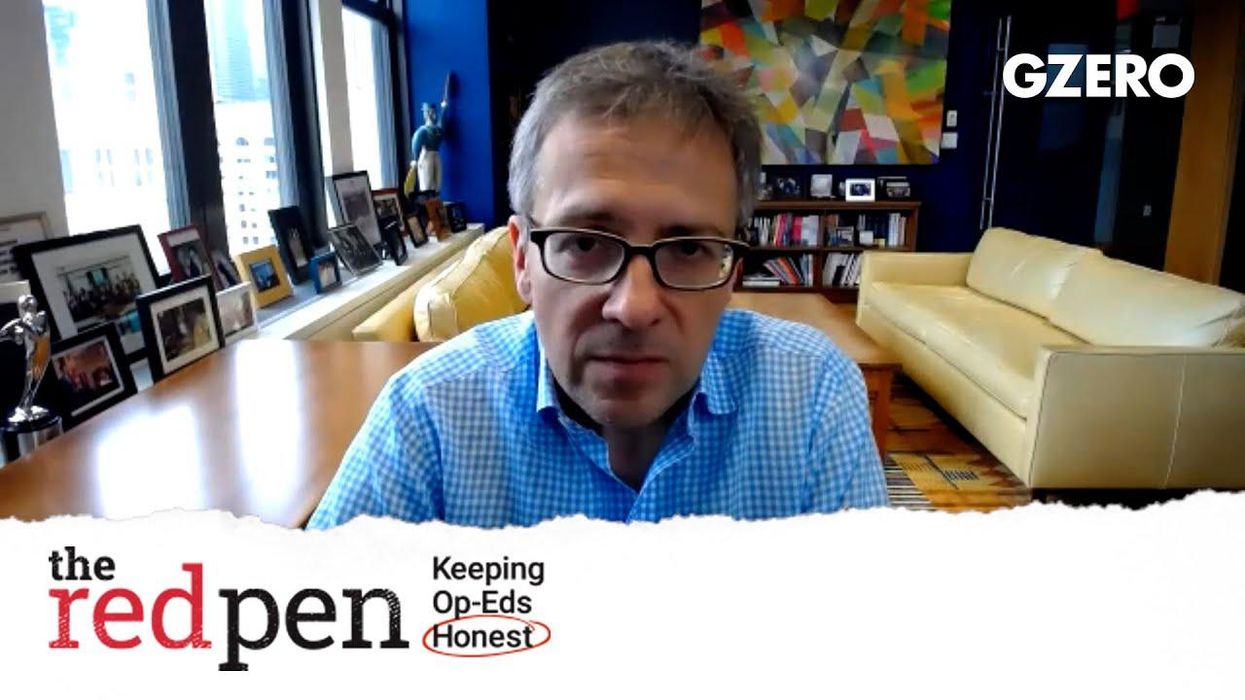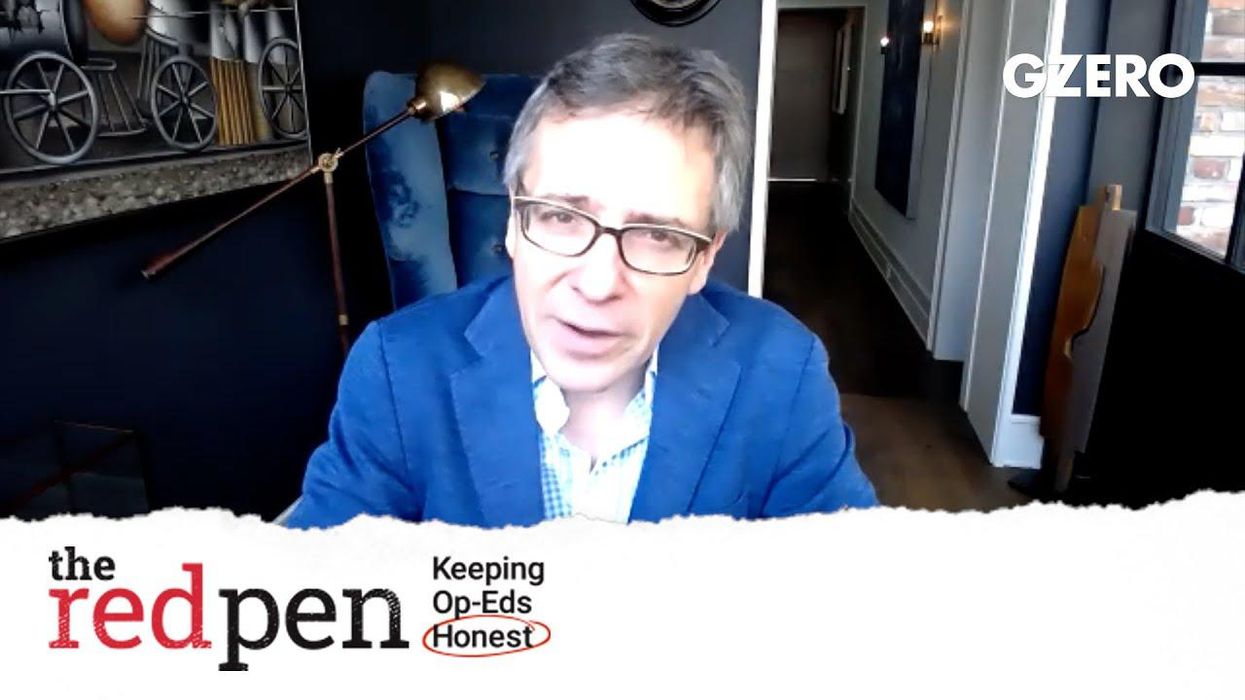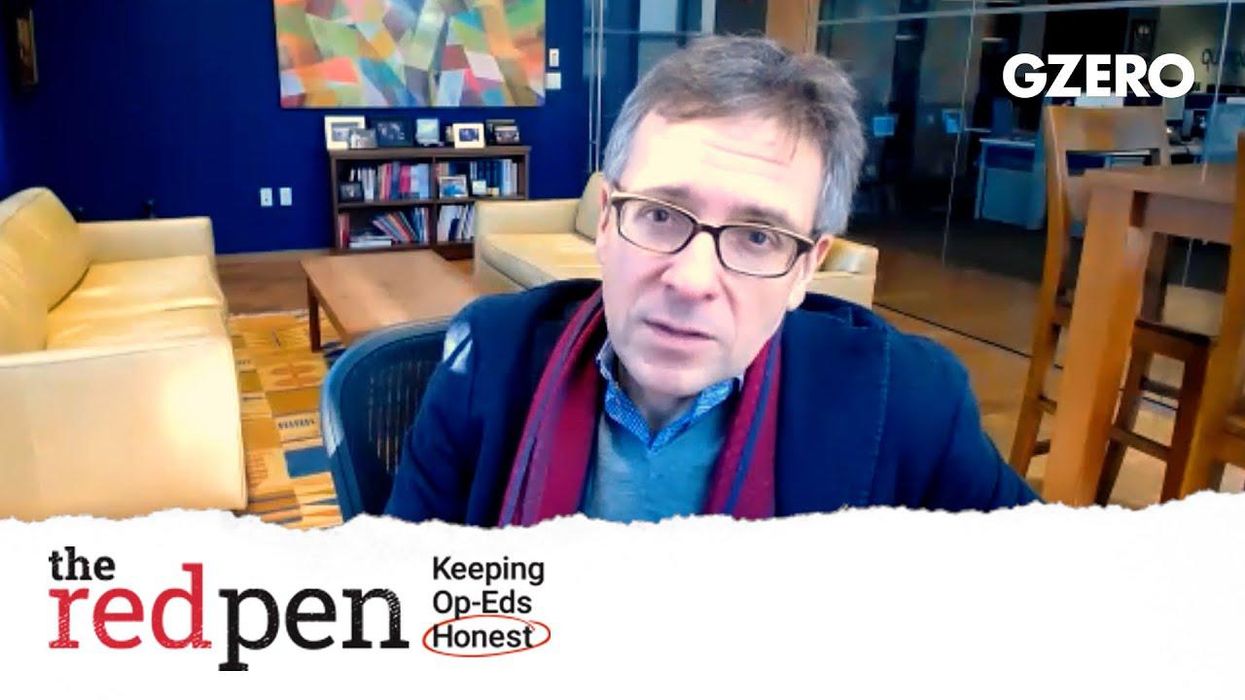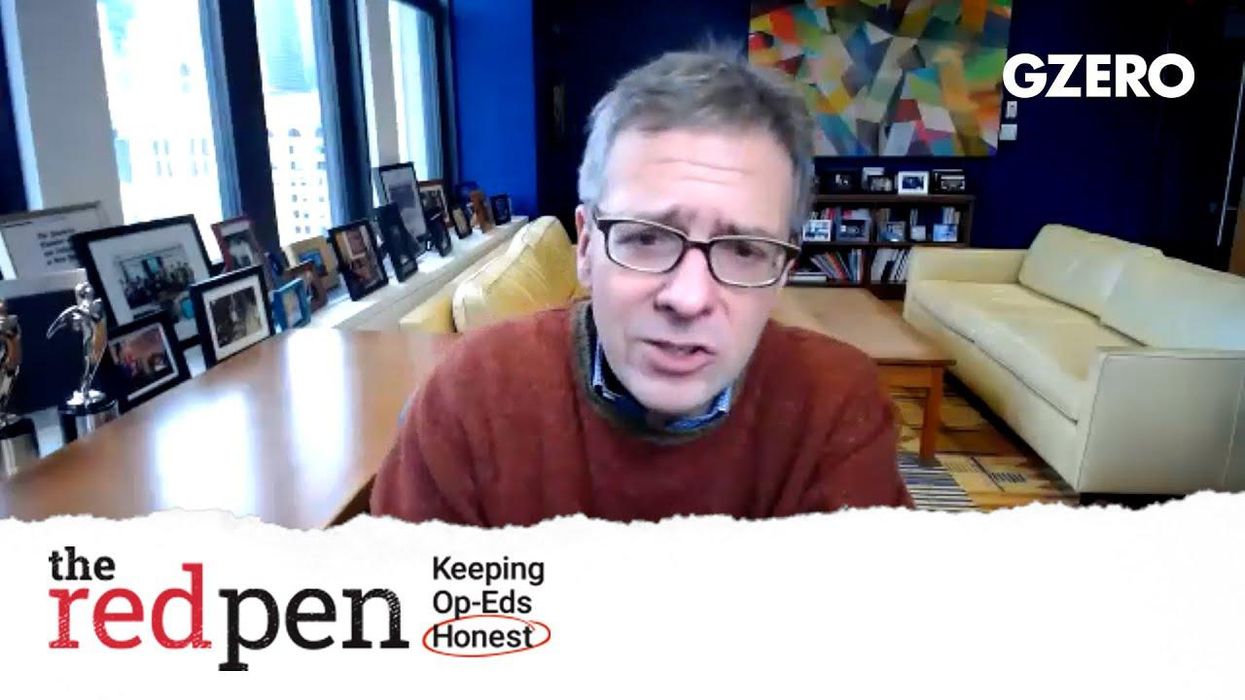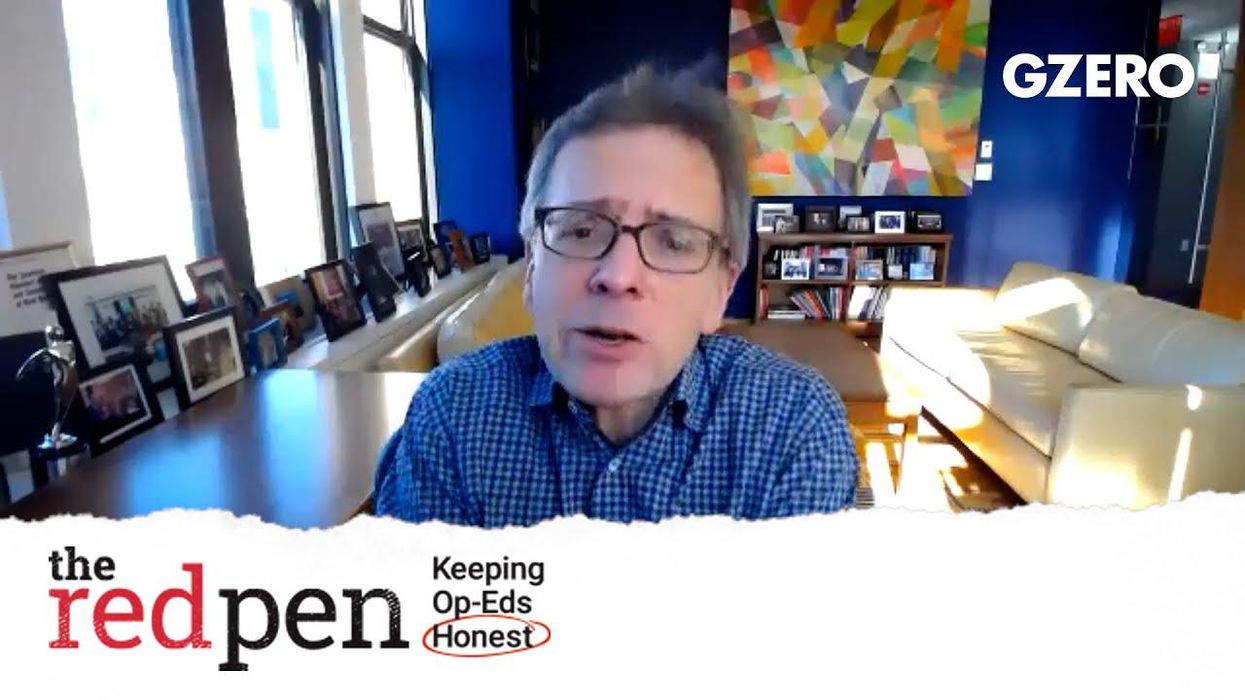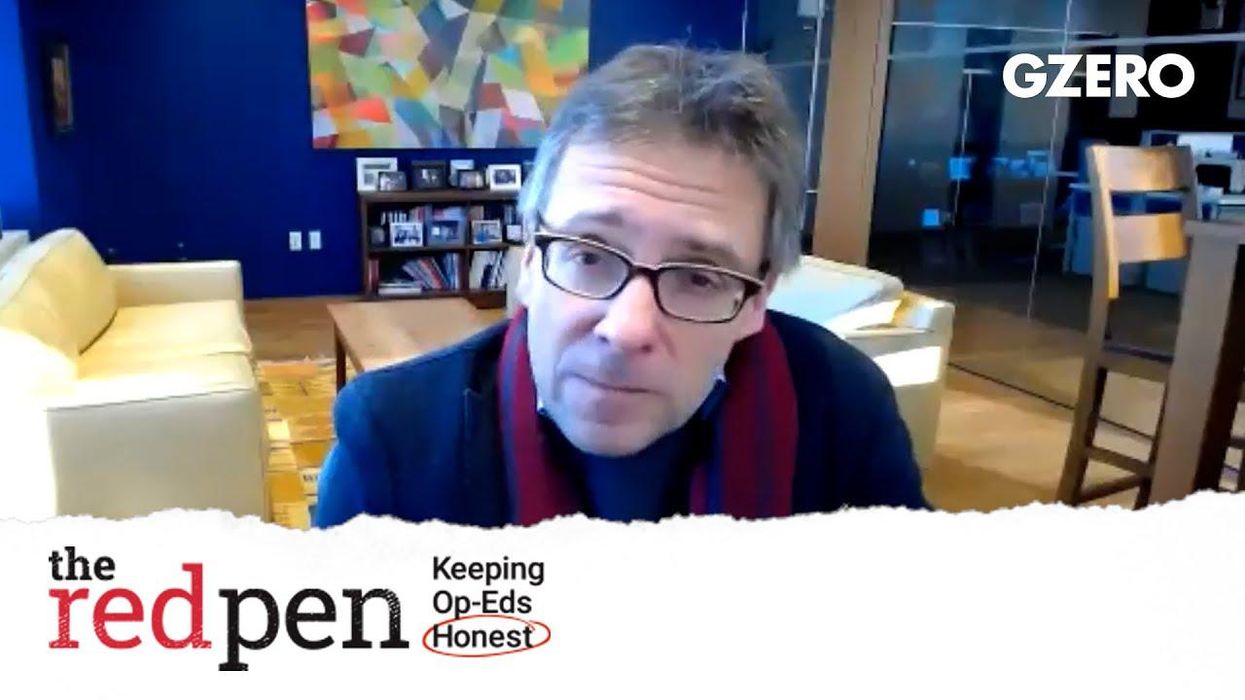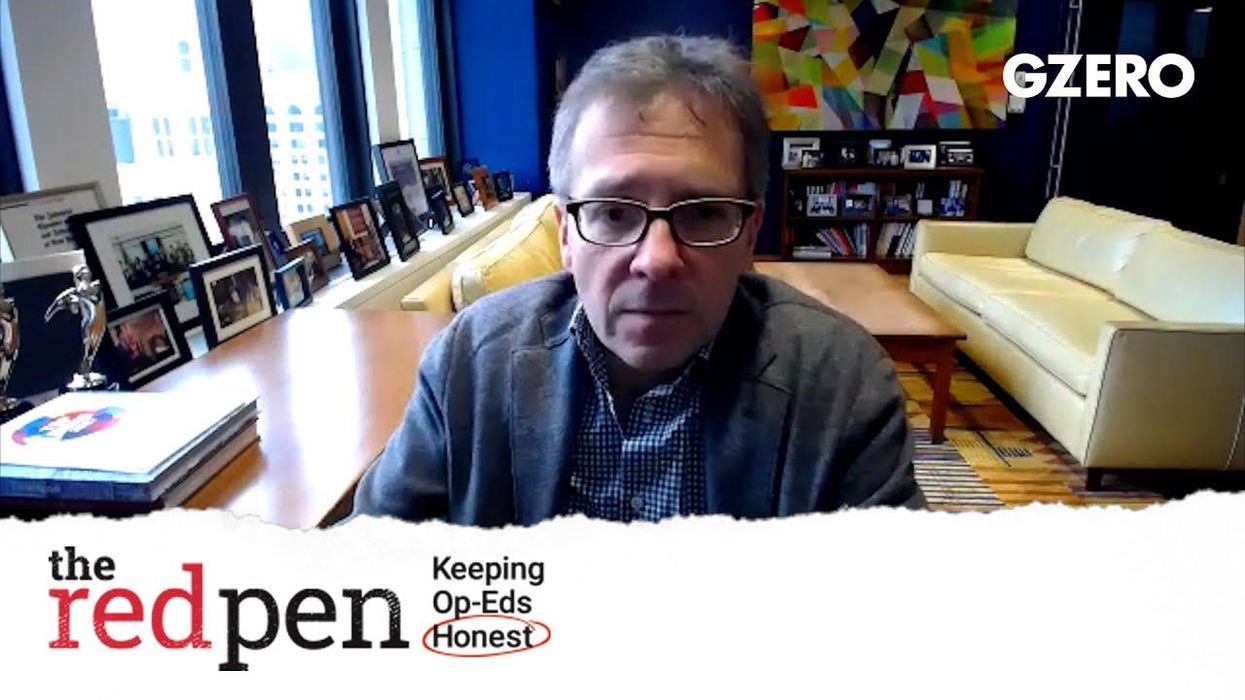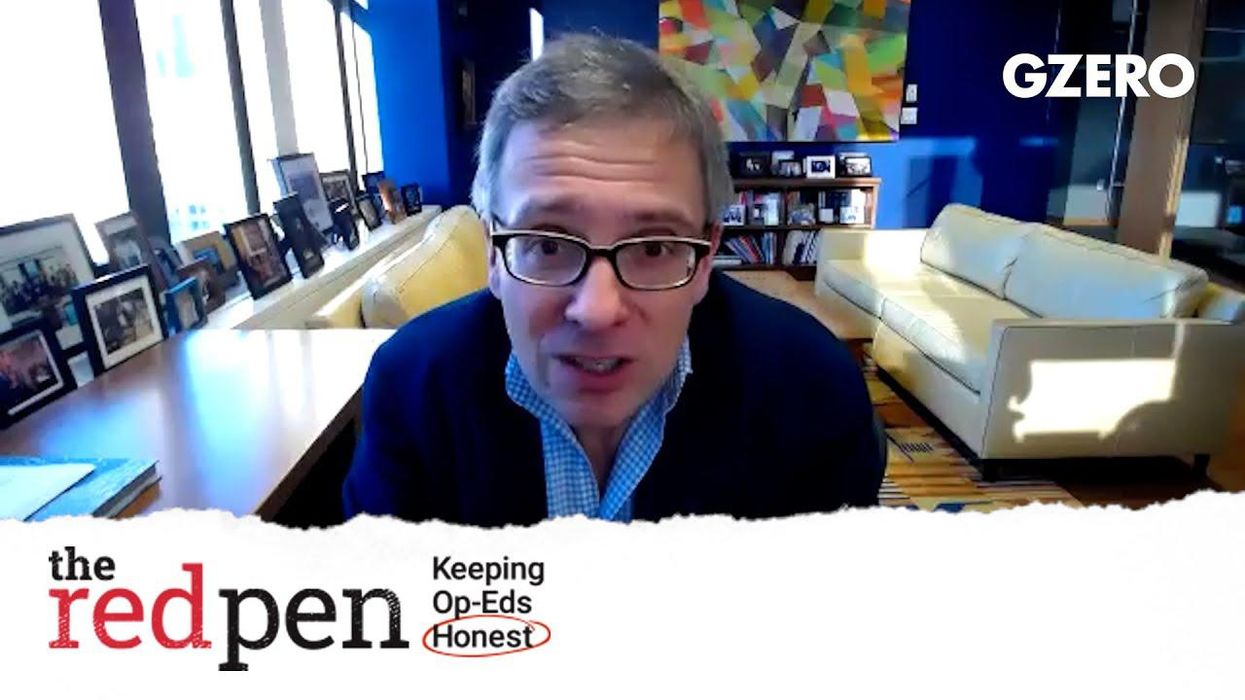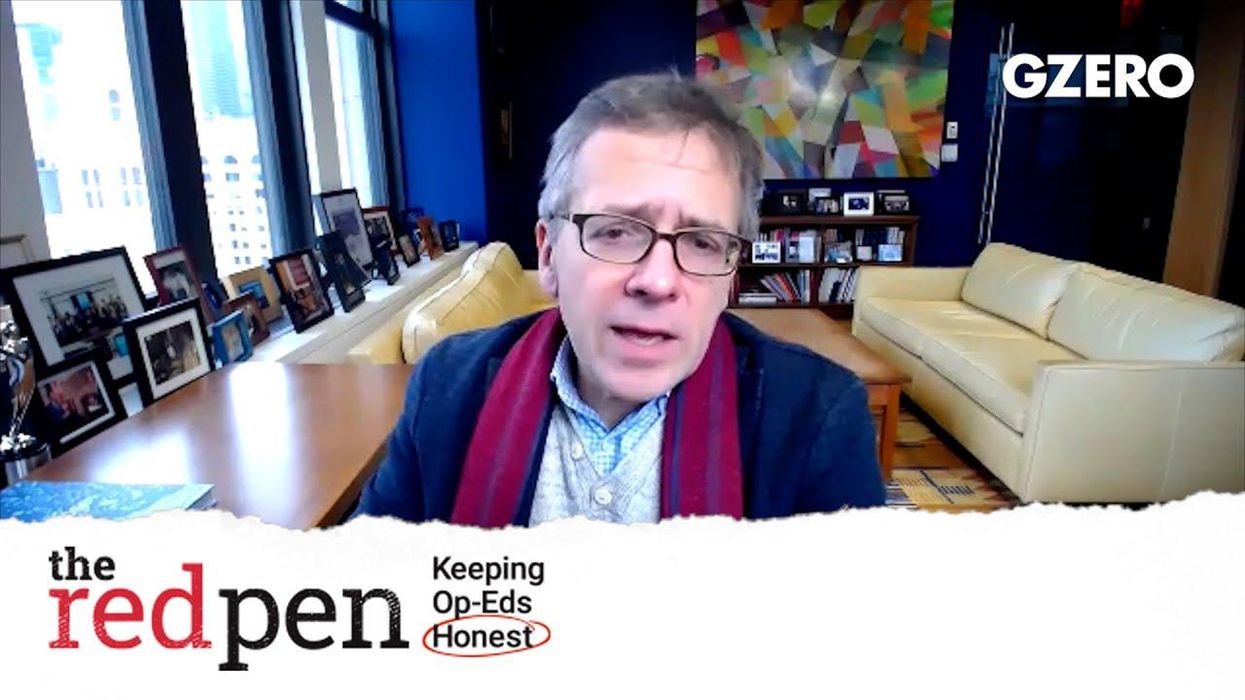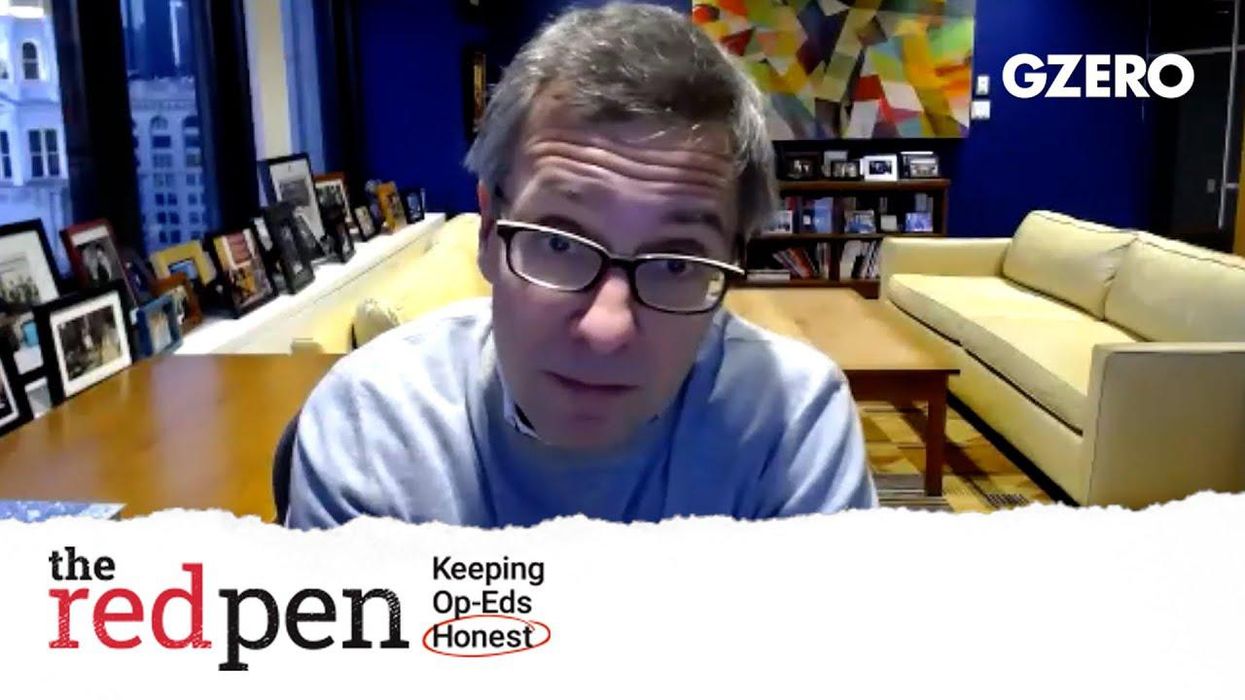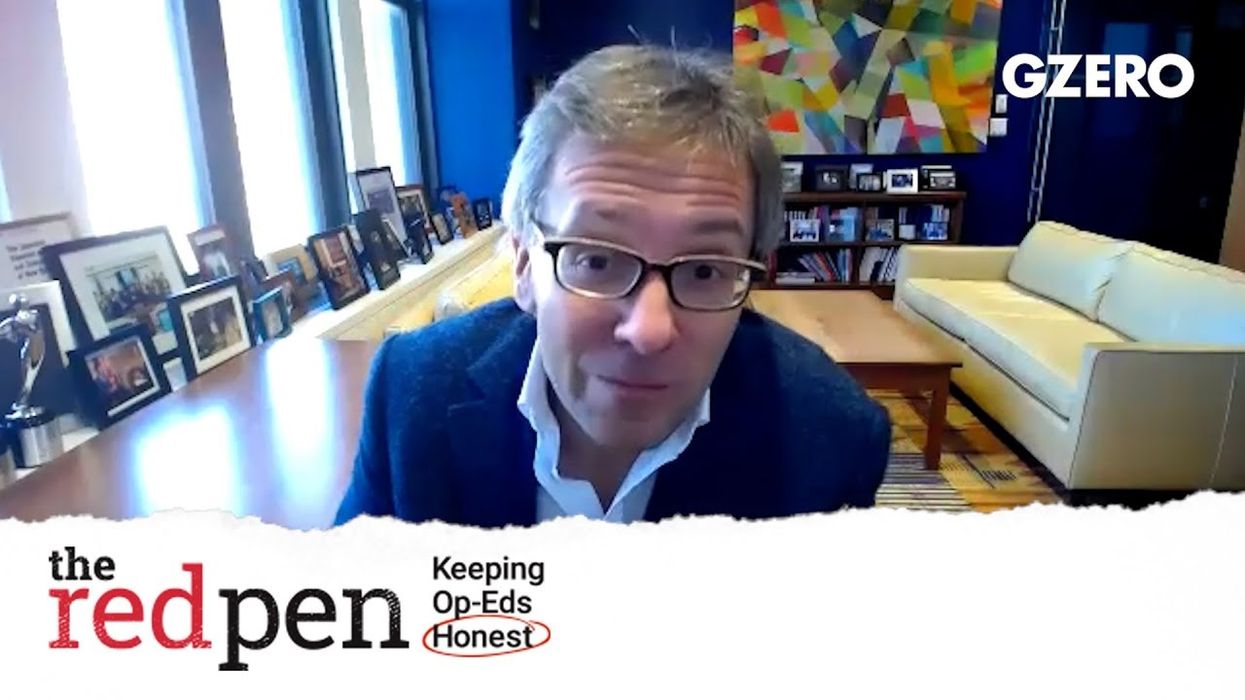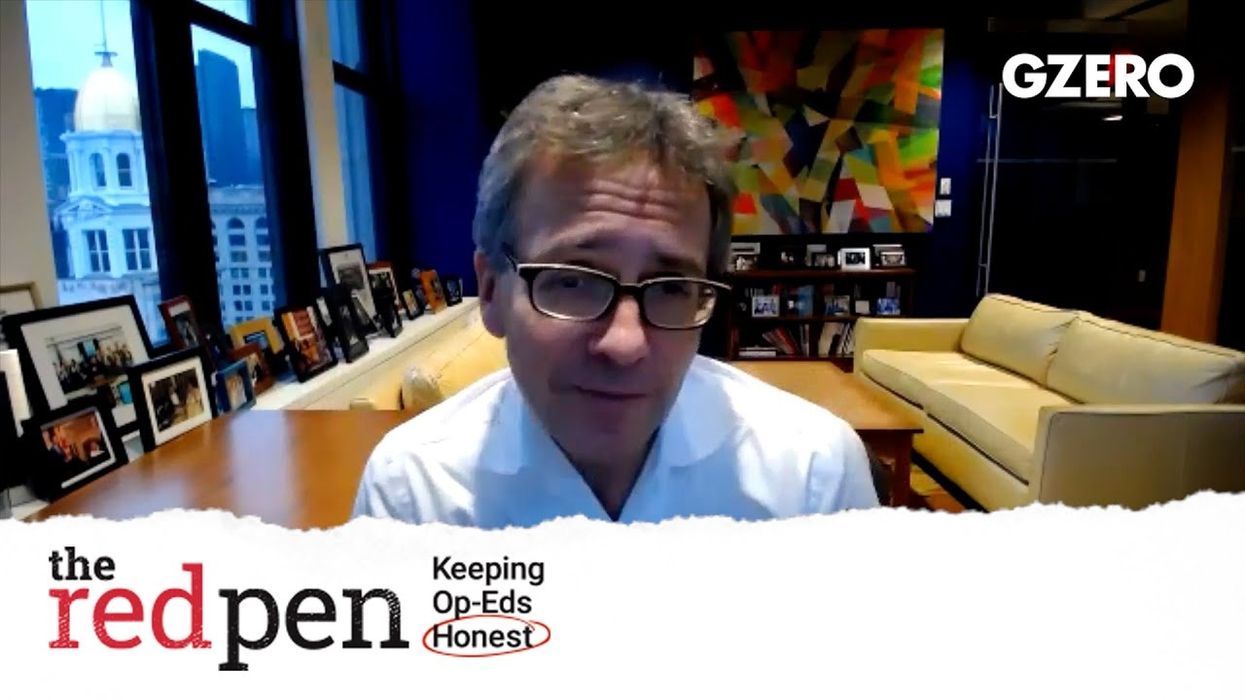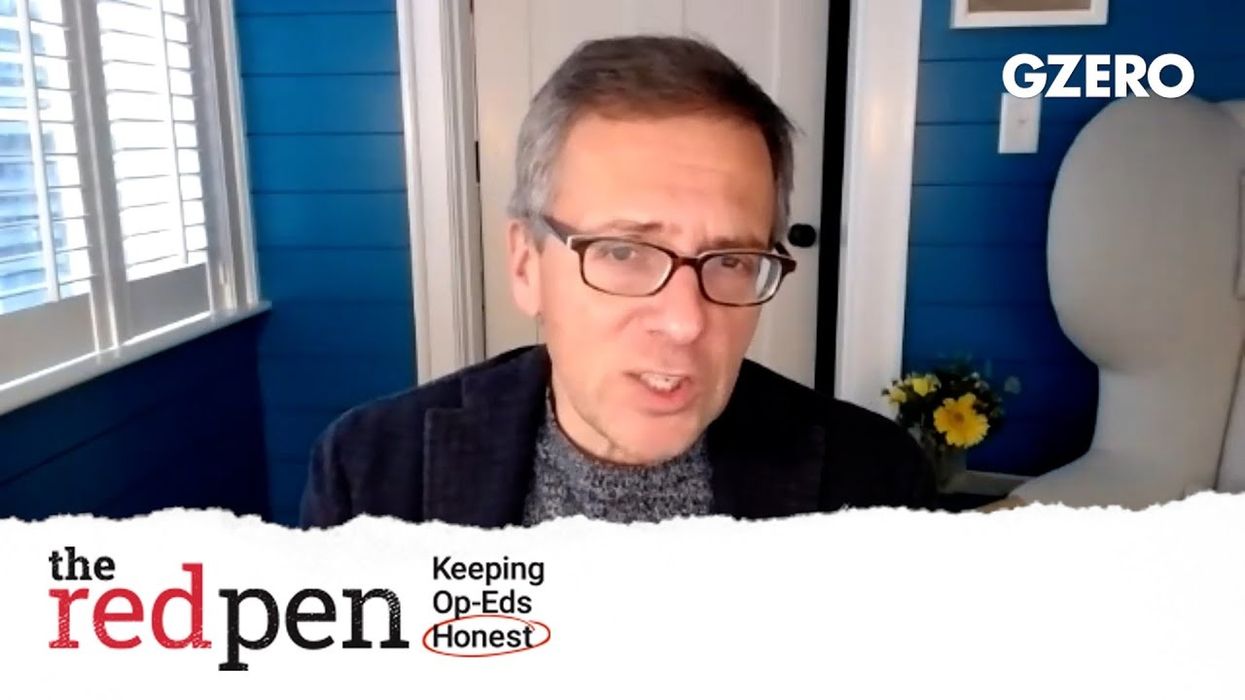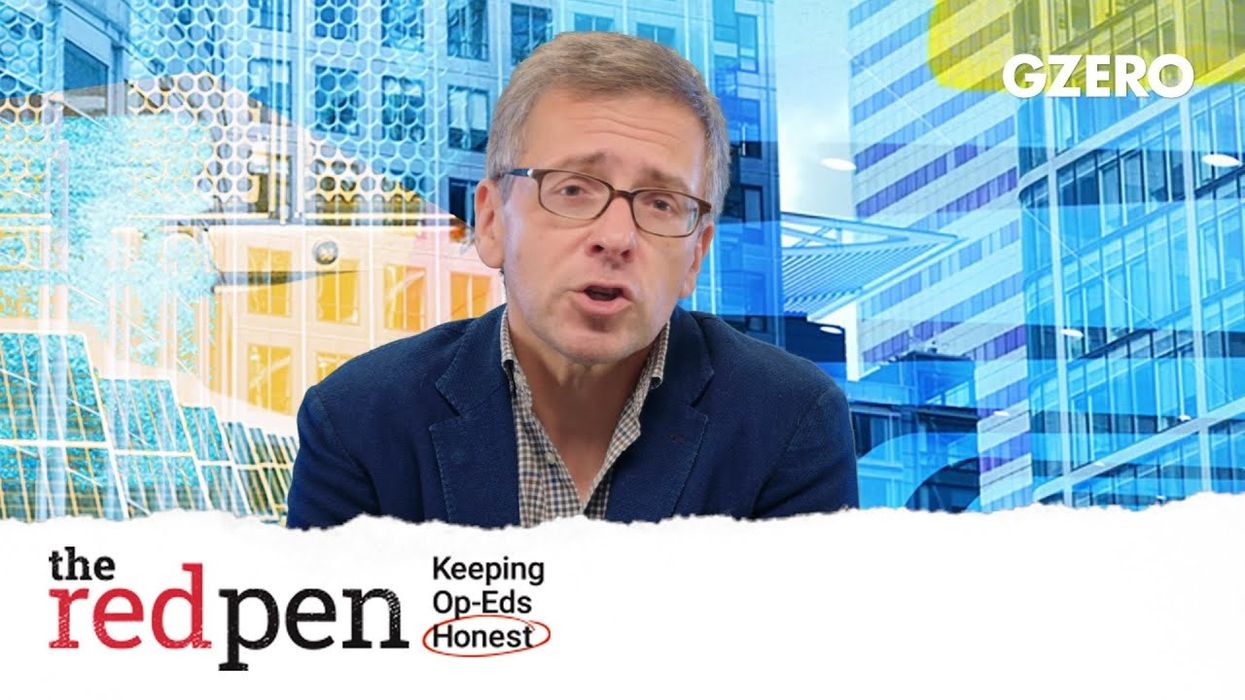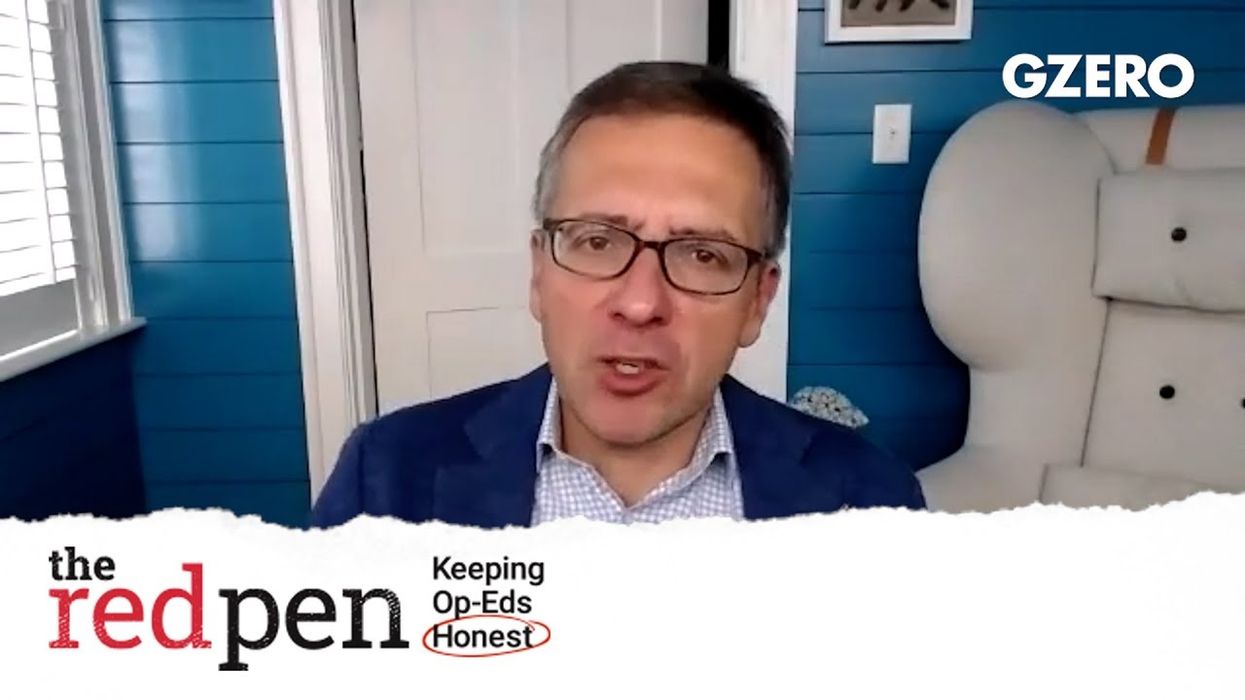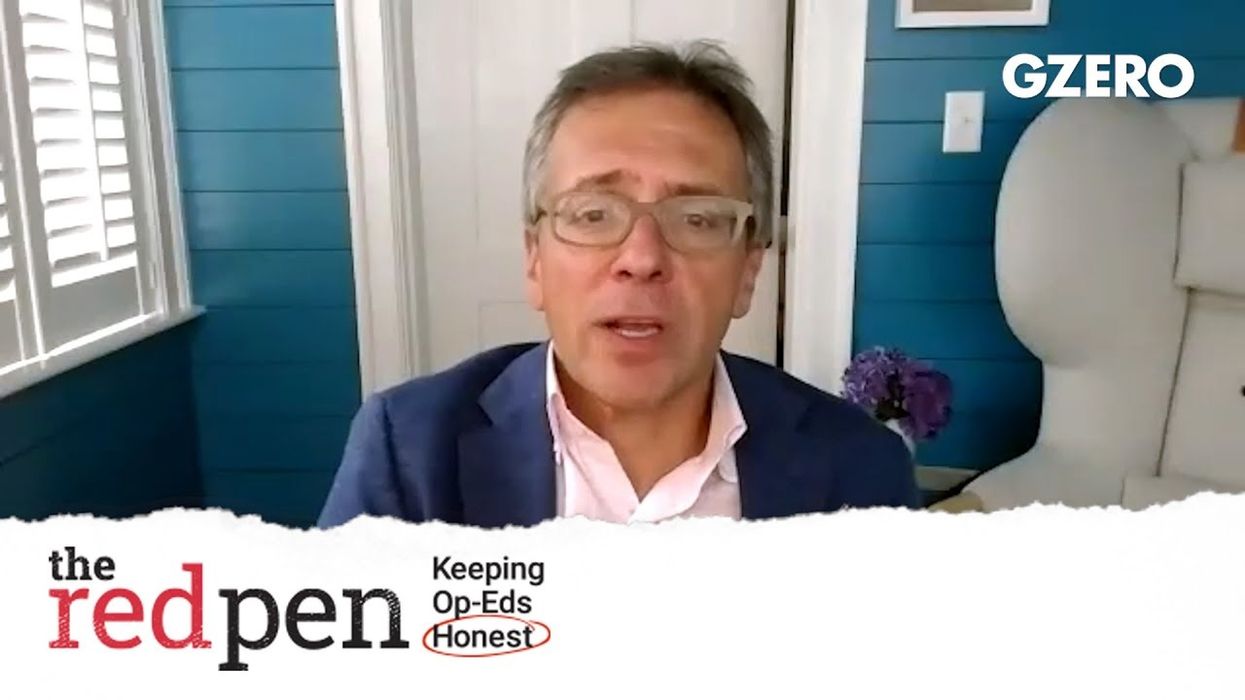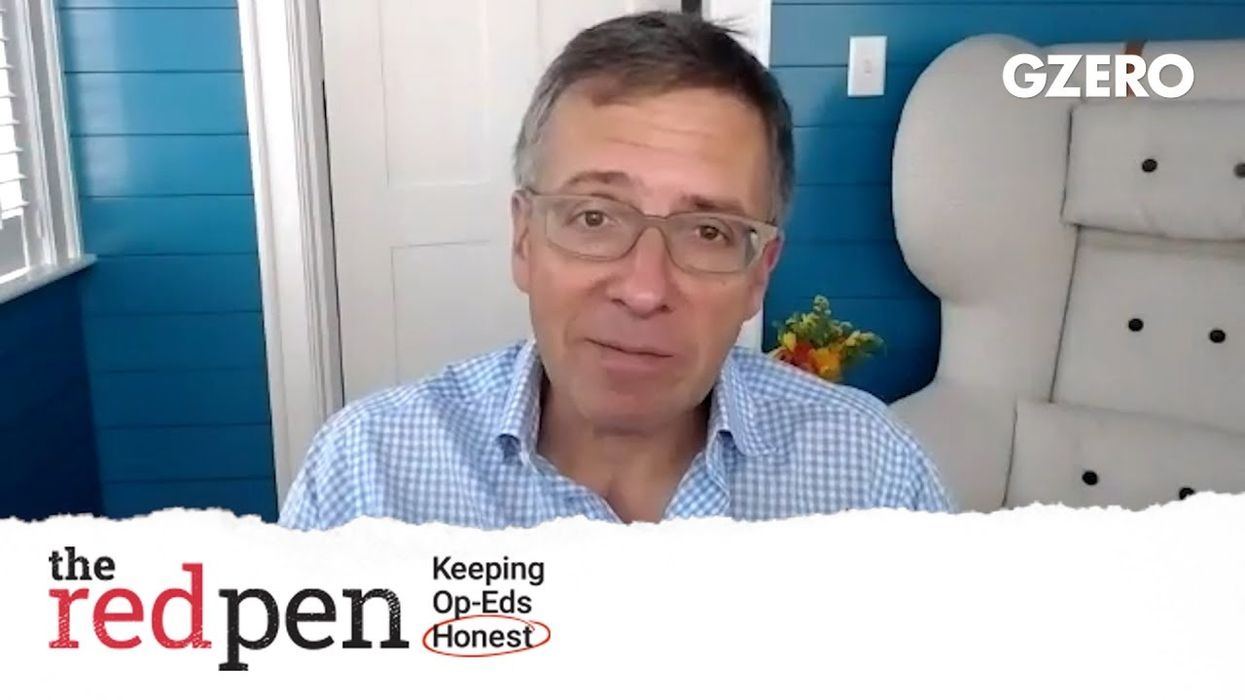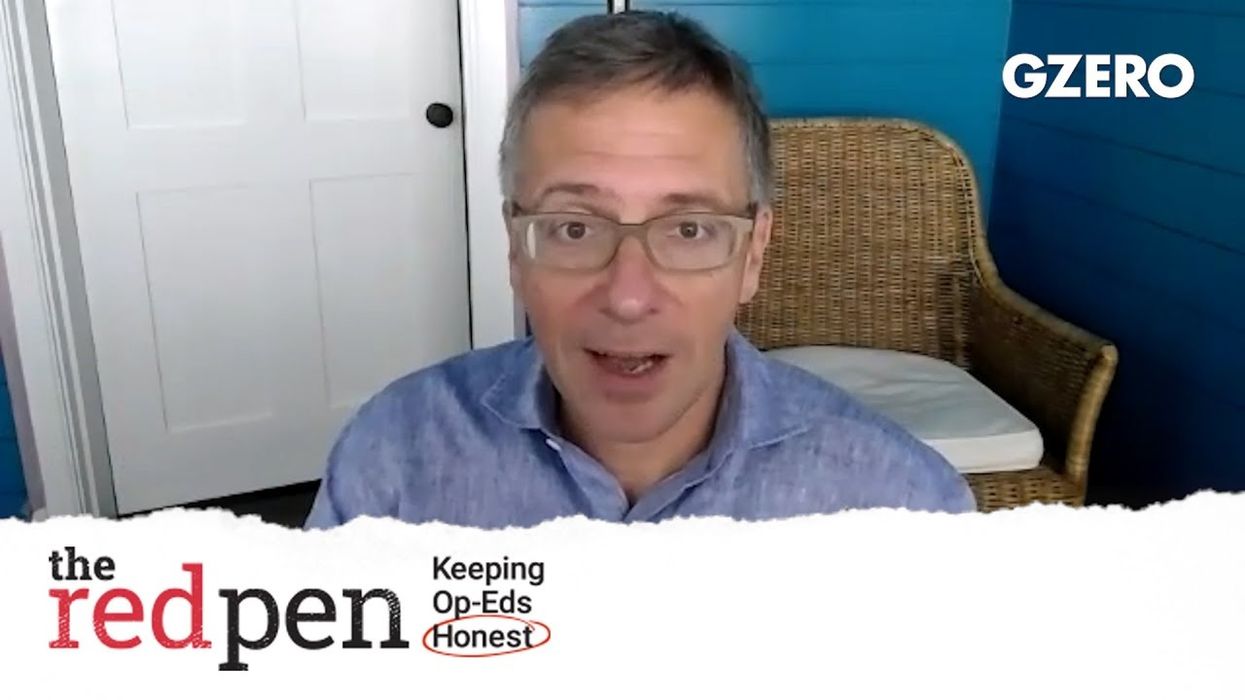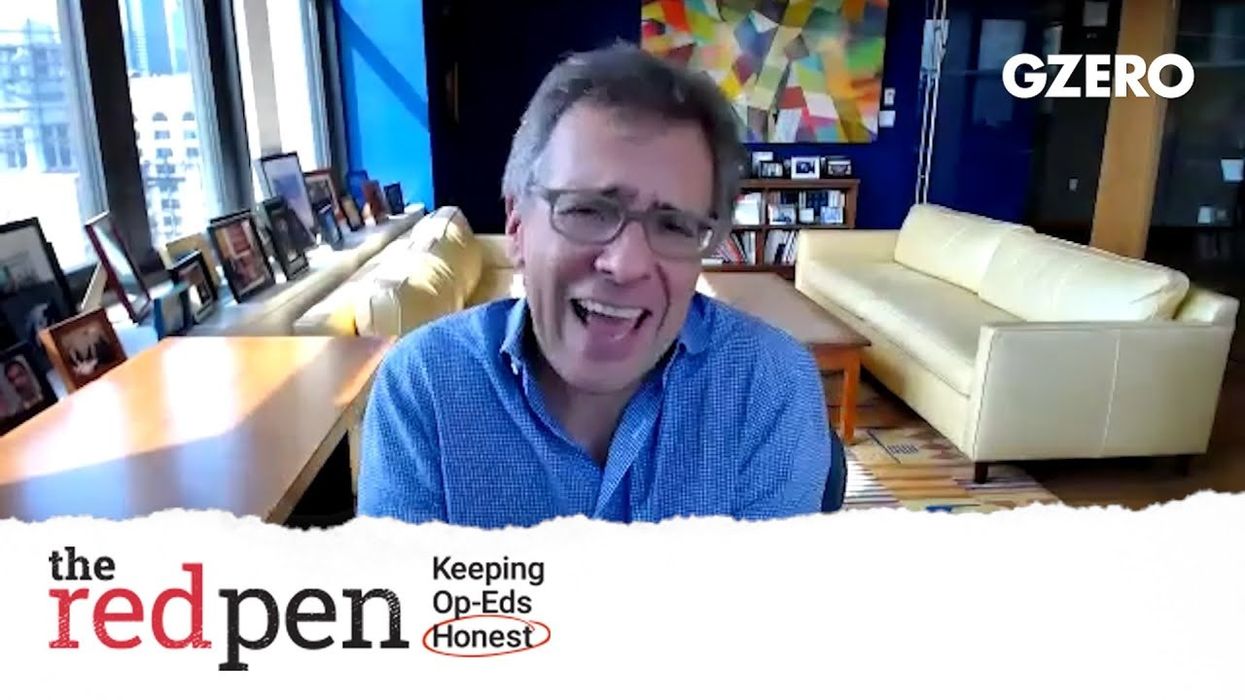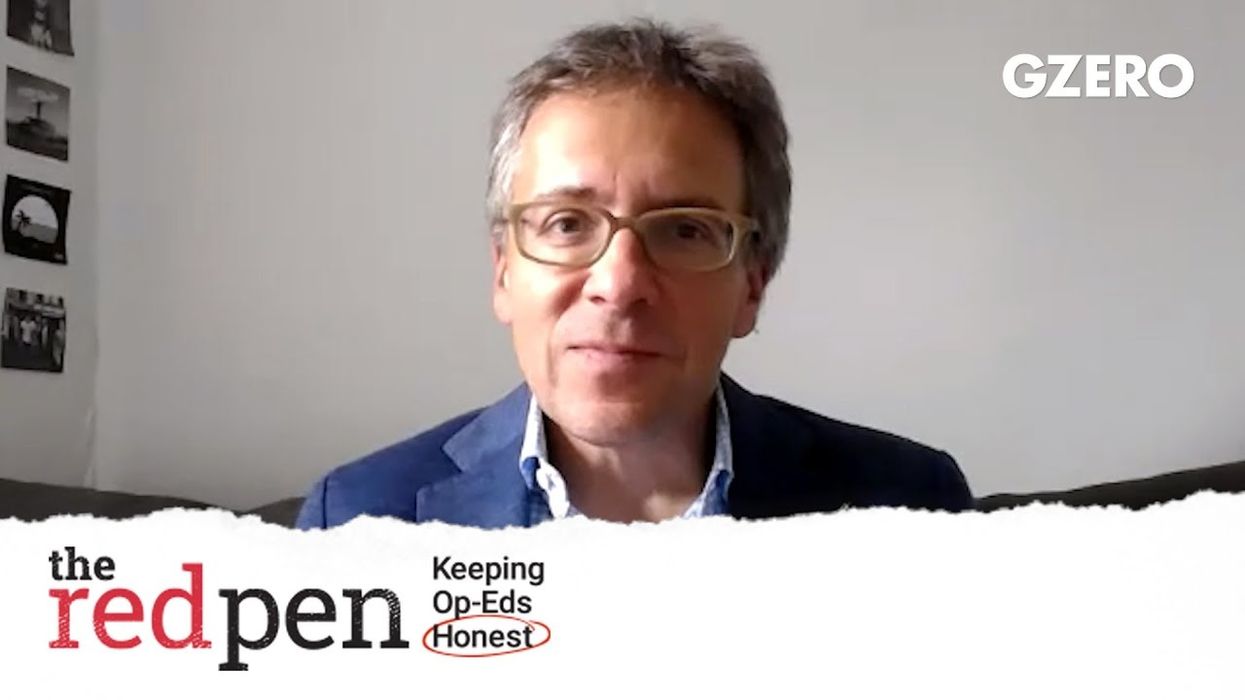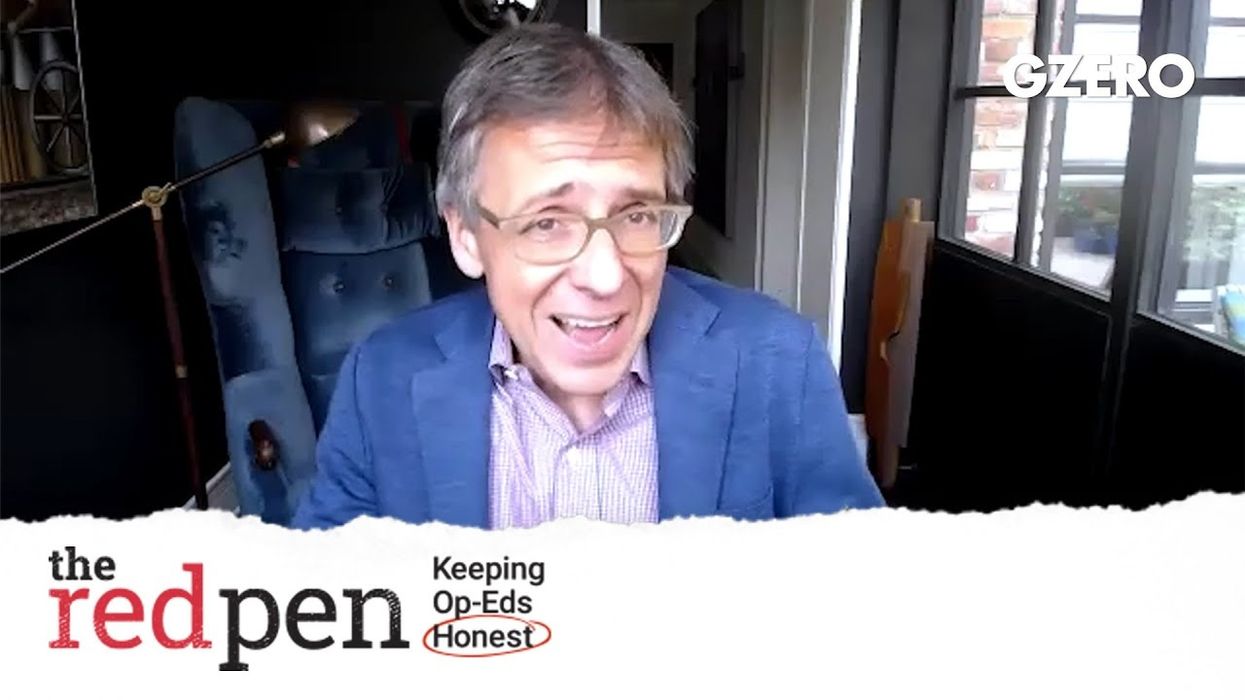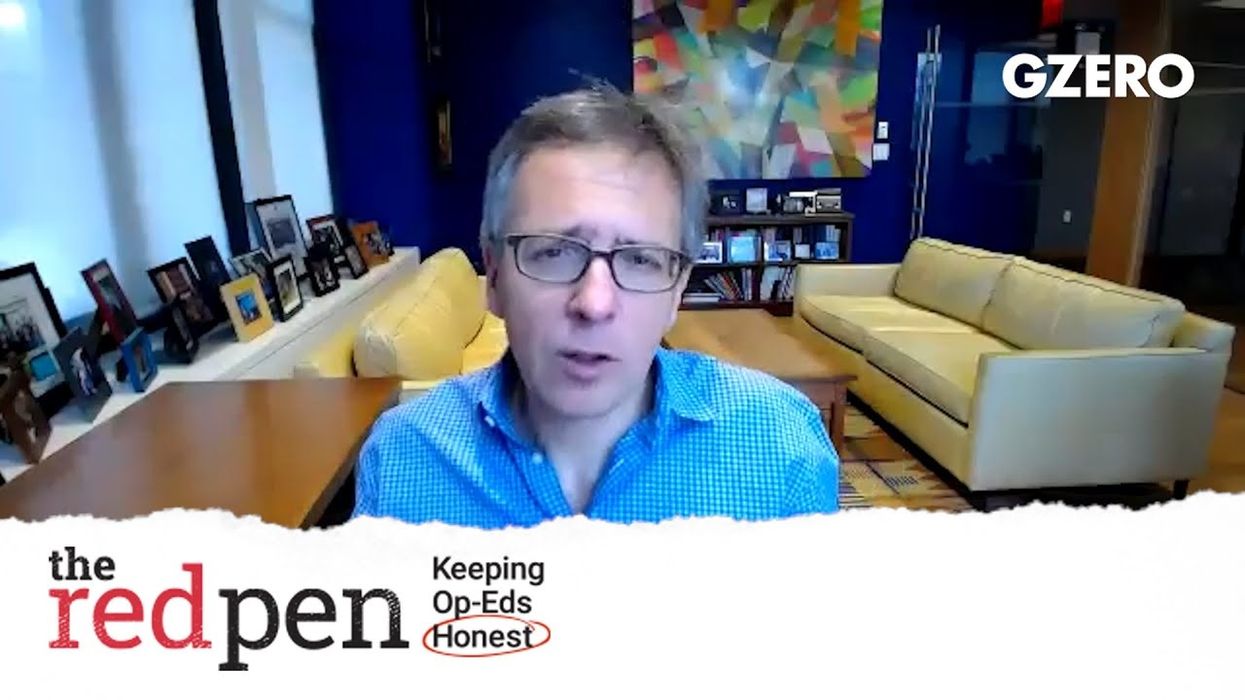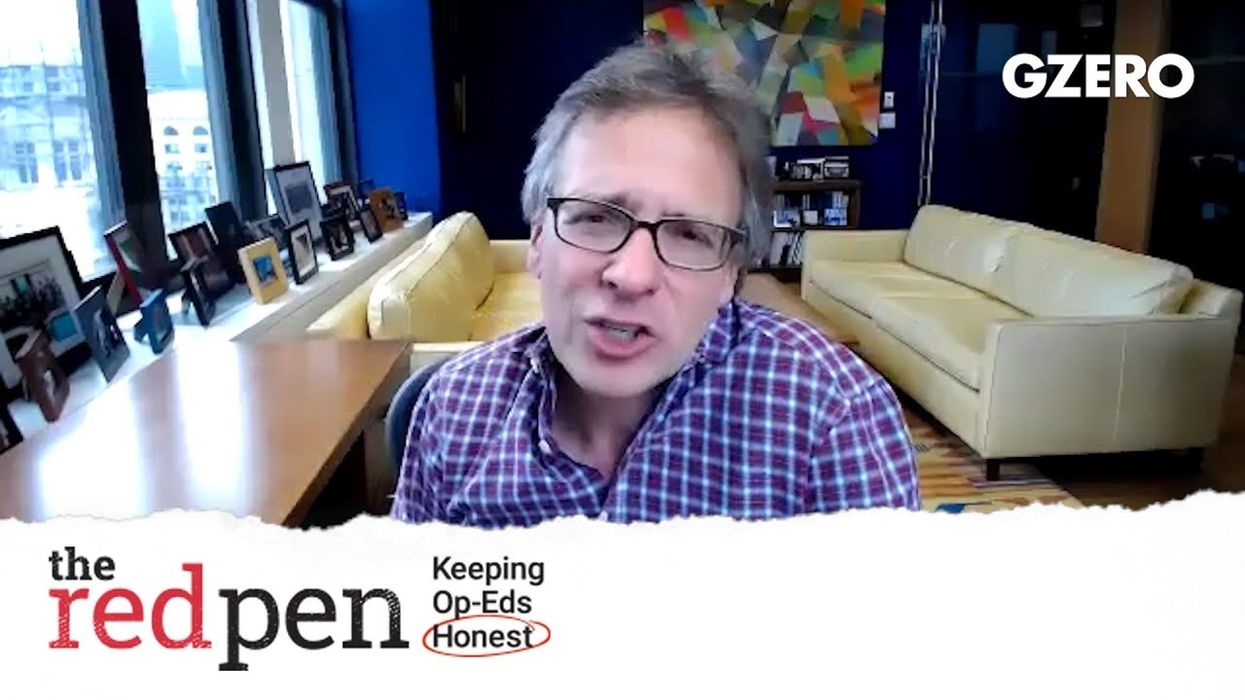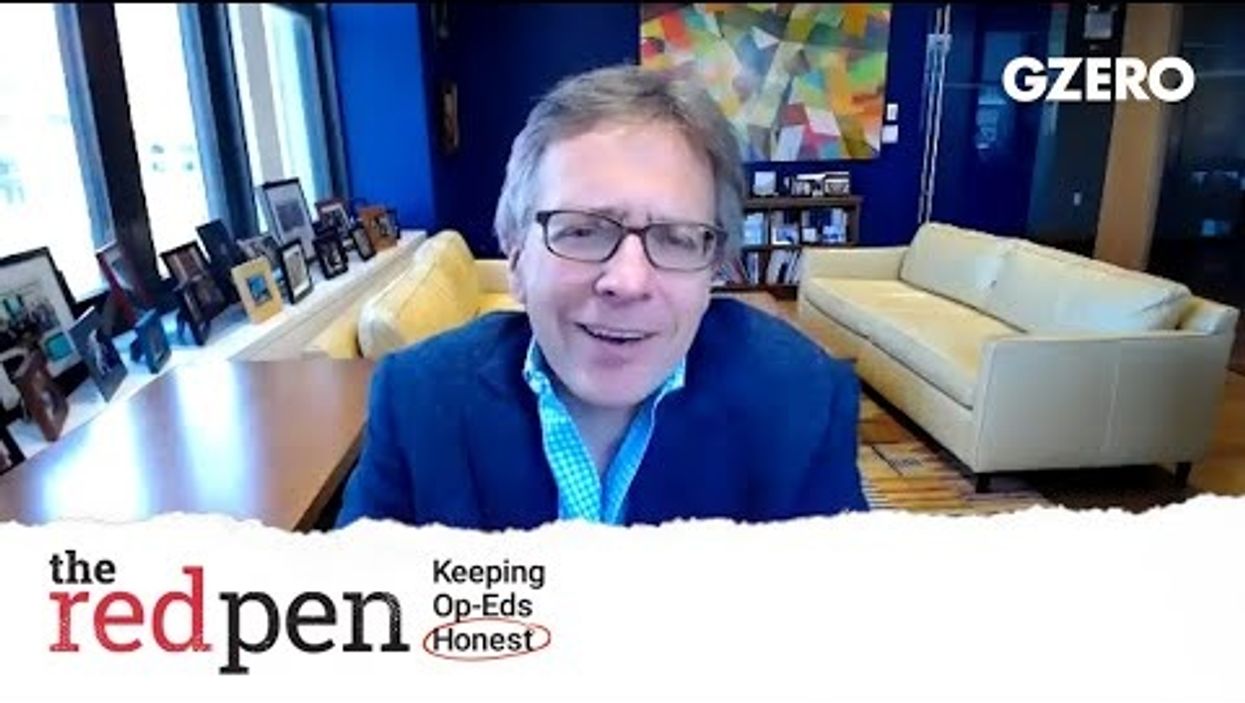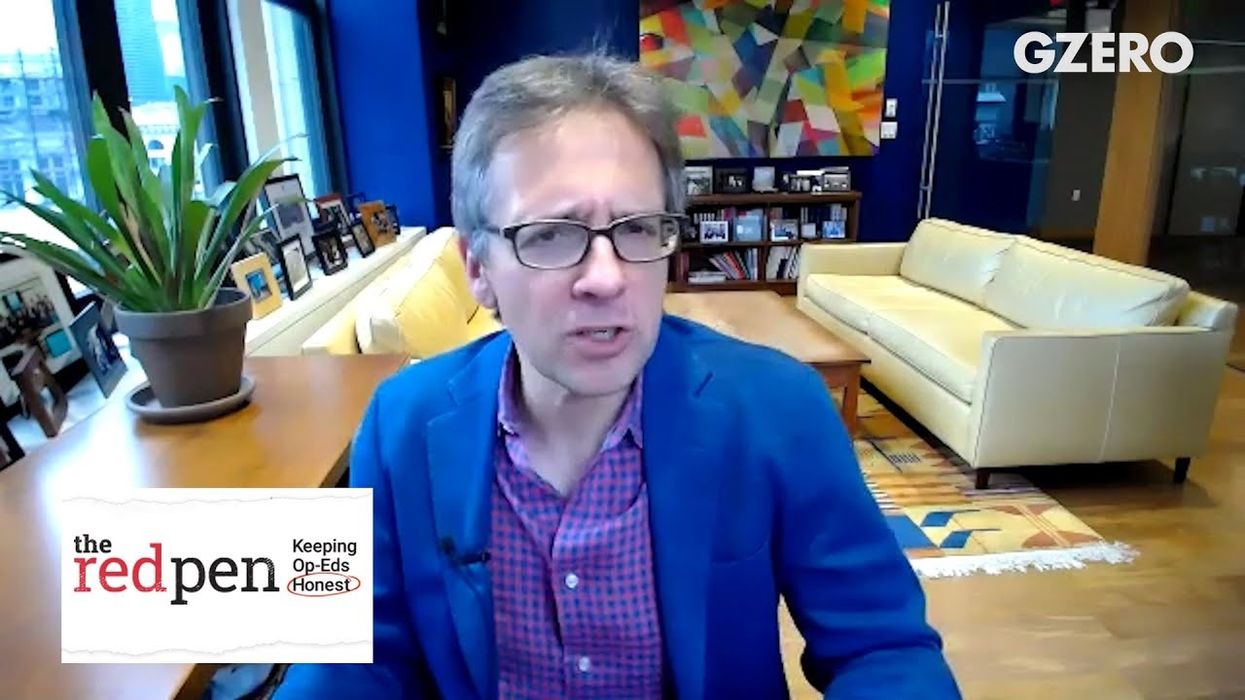VIDEOSGZERO World with Ian BremmerQuick TakePUPPET REGIMEIan ExplainsGZERO ReportsAsk IanGlobal Stage
Site Navigation
Search
Human content,
AI powered search.
Latest Stories
Start your day right!
Get latest updates and insights delivered to your inbox.
Top Risks of 2026 LIVE at 12pm ET
WATCH
The Red Pen
On GZERO Media's series The Red Pen, Ian Bremmer and colleagues pick apart the argument in a major opinion piece.
Presented by
In an op-ed titled "Iran Arms Embargo Reckoning," the Wall Street Journal editorial board argues that ending the UN arms embargo on Iran was a major flaw of the 2015 nuclear deal and questions whether Biden could do anything to contain Iran at this point. Ian Bremmer and Eurasia Group's Henry Rome take out the Red Pen to explain why this discussion misrepresents the importance of the embargo and the consequences for its expiration.
So, the US presidential election is now just days away, and today's selection is focusing on a specific aspect of foreign policy that will certainly change depending on who wins in the presidential contest—namely America's approach to Iran.
You've heard me talk before about the many similarities between Trump and Biden on some international policies, like on China or on Afghanistan. But Iran is definitely not one of those. Trump hated the JCPOA, the 2015 Iranian nuclear deal, put together under the Obama administration, and he walked away from it unilaterally. Joe Biden, if he were to become president, would try to bring it back.
But this article focuses on one specific aspect of the deal—it was a concession made to Iran in exchange for the promise of curbing Iran's nuclear ambitions. There was a long-standing UN embargo that prevented Iran from buying conventional weapons like tanks and missiles and exporting arms. As a tradeoff in the 2015 agreement, that embargo was set to end—and it did—just a few days ago.
The Wall Street Journal is not happy about that one bit and the piece calls this concession a flaw of the Obama deal. It also questions whether Biden could do anything to contain Iran at this point.
So, let's get out the Red Pen.
The Wall Street Journal is not happy about that one bit and the piece calls this concession a flaw of the Obama deal. It also questions whether Biden could do anything to contain Iran at this point.
So, let's get out the Red Pen.
Number one, the Trump administration sought an extension of the embargo this past summer which was blocked in the United Nations Security Council by China and Russia. The Wall Street Journal writes that the countries that abstained in that vote—including the UK, Germany and France, "stayed silent despite Iran's history of promoting terror in Europe."
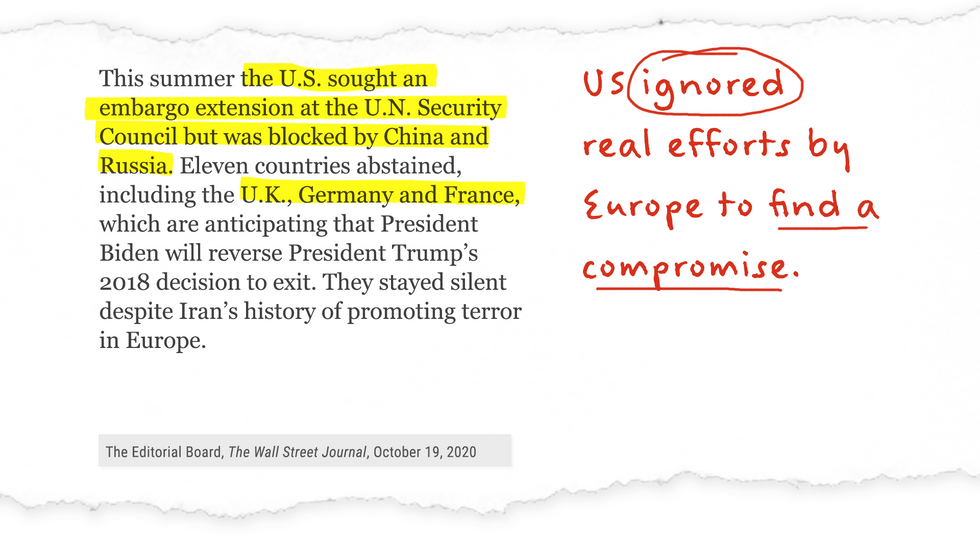
Actually, the United States ignored real efforts by Europe to find a compromise on the arms embargo this summer. Like proposing a temporary extension of the ban on Iranian weapons imports and tightening restrictions on Iranian exports. They suggested that the United States under the Trump administration stuck to an all-or-nothing stance and blew the Europeans off. So, no, America didn't get its way. But also, there was no real negotiating done here. Not even an effort.
Next, on the issue of the snapped-back sanctions themselves, the Wall Street Journal says, "this is another case when the United Nations is more obstacle than ally to US interests."
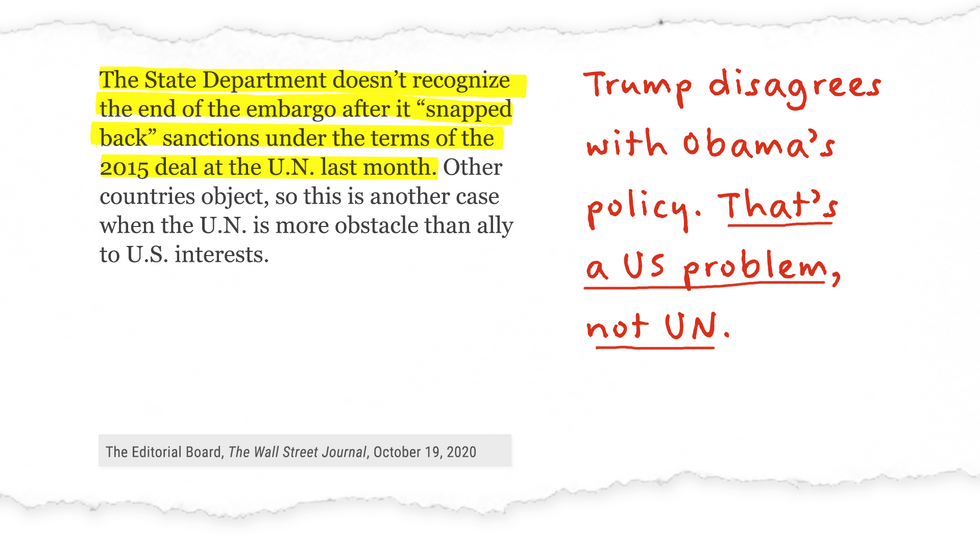
That's just not the case at all. The thing is that the Obama administration created the snap back mechanism in this case—it was a bargaining chip, something the American's gave to get the Iranian's into the deal. So, the Trump administration's issue here is a legitimate grievance but what the Obama administration, not about the United Nations at all.
And finally, the editorial board asks, "How is Mr. Biden going to contain Iran's regional imperialism and support for terrorism without an arms embargo?"
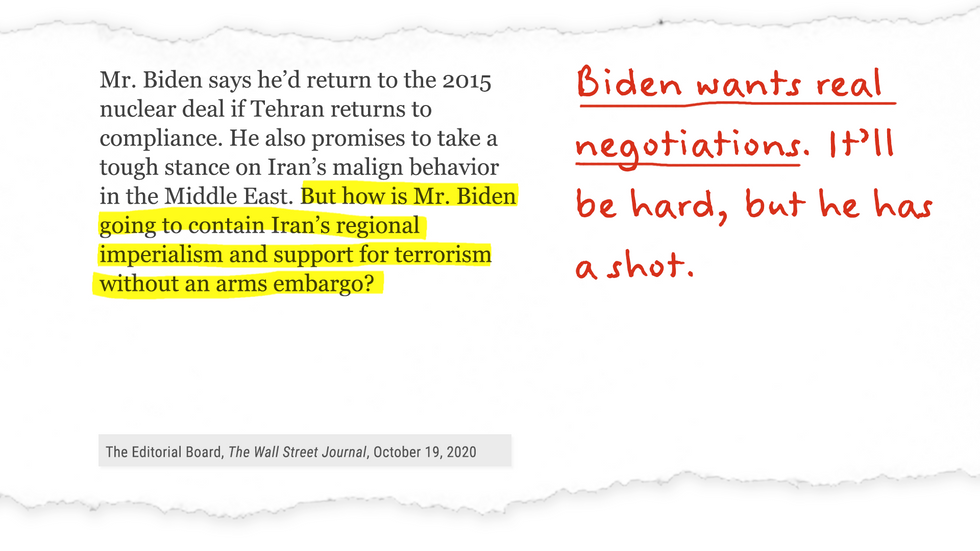
Well, one thing here is Iran is not going to go on a tank and fighter jet spending spree like it's Black Friday at Costco, because Tehran doesn't have the cash and they also don't want more sanctions right now—and neither do Iran's allies China and Russia. Let's keep in mind, the Iranian economy is in parlous condition right now. In part because of mishandling coronavirus, but in part because the United States has pushed much tougher sanctions against Iran.
So, I mean, the ability of the Iranians to go and spend a lot on the military now is significantly less than it was when the Iranian deal was struck with the Obama administration. To the broader point of getting back to an acceptable nuclear deal—far more important than conventional arms—sure, it's going to be messy. Not at all convinced that it is going to happen. But Biden will have international support. Remember, the United States left the nuclear deal unilaterally. Every one of America's allies that were confederates in getting the deal done, opposed that from happening. And they've got a better shot at getting back than the United States does right now.
I'd also say on that introductory point about this concession being a flaw of the 2015 agreement: Deals involve tradeoffs. They are about bargaining. Keeping Iran away from a nuclear bomb was the goal, pushing that capacity off for a decade or more, and was considered a higher priority than the arms embargo at the time.
Different people can have different judgements on that one, but it is how diplomacy works.
Keep reading...Show less
More from The Red Pen
Fix climate change, don't just adapt to its consequences
November 05, 2021
Biden's mistakes in Afghanistan were not "dereliction of duty"
September 02, 2021
US global power remains strong, despite Afghanistan mistakes
August 25, 2021
Would China really invade Taiwan?
May 06, 2021
Mitt Romney isn't the future of the GOP. He's the past.
February 12, 2021
Israel-UAE relations & the Abraham Accords are not at risk under Biden
February 05, 2021
China's EU deal betrays insecurity; not a wedge between US & EU
January 07, 2021
America is still a democracy post-Trump, but is it a healthy one?
December 11, 2020
Don’t "give up" on all 73 million Americans who voted for Trump
November 20, 2020
The GOP siding with Trump is hardly a threat to democracy
November 12, 2020
"Fixing" US foreign policy isn't the real challenge Biden would face
October 16, 2020
Calling AMLO authoritarian is a gross exaggeration
October 08, 2020
The US COVID response under Trump was not "merely mediocre"
September 09, 2020
US-Russia: An all-or-nothing approach leaves US with nothing
August 14, 2020
The recovery will be a jagged swoosh, not a V-shape
July 10, 2020
Criticisms of US COVID response vs EU are not partisan
July 01, 2020
Hong Kong is a tragedy, not a domino
June 03, 2020
No, don’t abolish the WTO. Reform it.
May 07, 2020
Ian Bremmer: The United States isn't Sweden
April 30, 2020
GZERO Series
GZERO Daily: our free newsletter about global politics
Keep up with what’s going on around the world - and why it matters.
